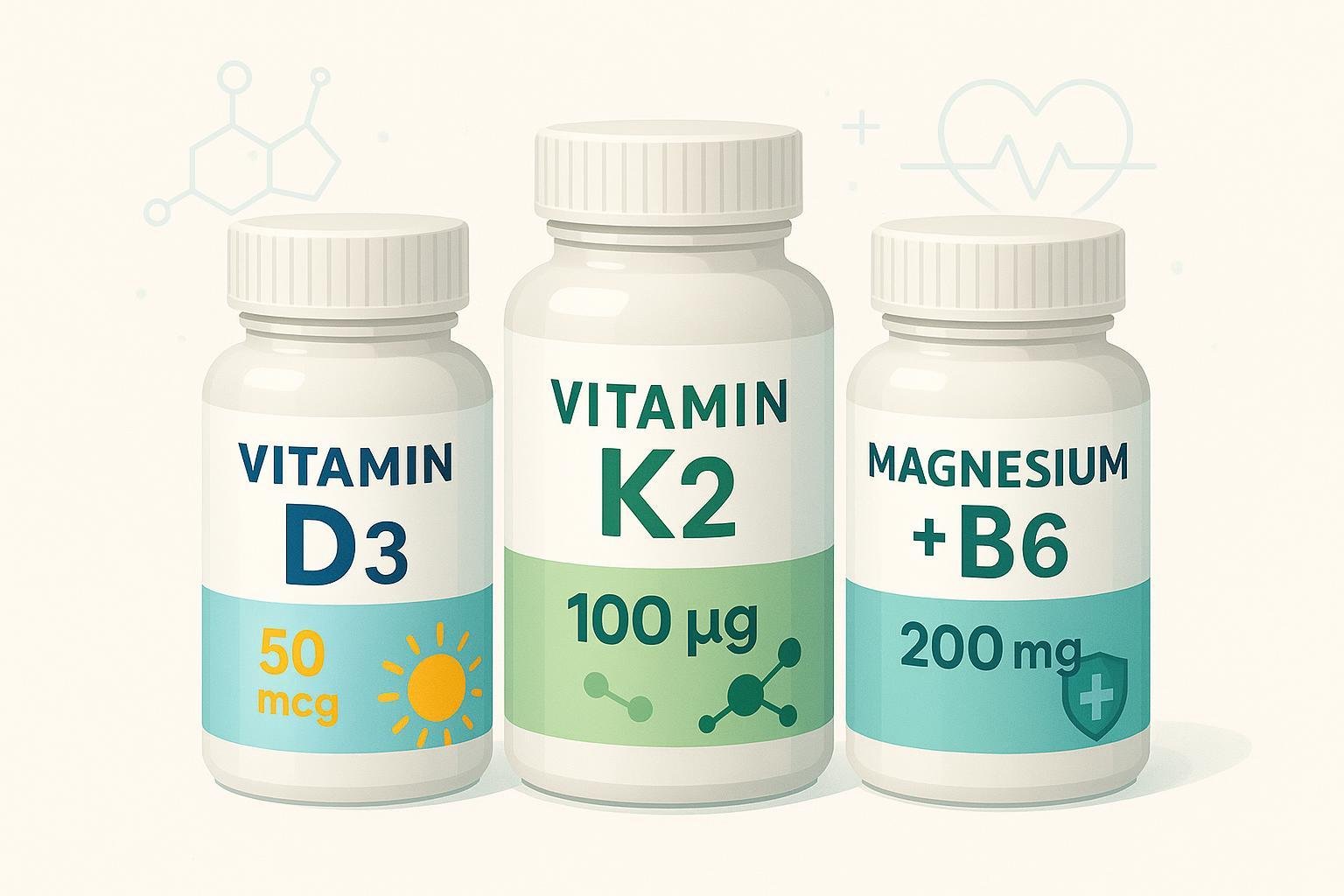What Does “mcg” Mean on Supplement Labels? Comparing mcg, ug, and μg in Nutritional Products
Table of Contents

Introduction
When choosing vitamins or nutritional supplements, you might notice units like “mcg,” “μg,” or even “ug” on ingredient panels. Understanding these abbreviations is key to safe, effective supplement use—especially when small dosage changes matter for health. This article breaks down what each abbreviation really means and how to read your supplement label with confidence.
What Is a Microgram? (mcg, μg, and ug Explained)
A microgram is a unit of mass equal to one-millionth of a gram. In supplements, it’s used to measure tiny amounts of vitamins, minerals, or botanical ingredients. On most U.S. labels—especially those regulated by the FDA—you’ll see “mcg” for microgram. Internationally and in scientific documents, you may see “μg” (the Greek letter mu plus ‘g’). Sometimes, “ug” appears as a workaround when keyboards or printers can’t easily produce “μ”—but it means the same thing.
- mcg = microgram (FDA-recommended for U.S. supplement labels; FDA Source)
- μg = microgram (standard in science and many international labels)
- ug = microgram (not official, but often used for convenience)
Quick Reference Conversion Table
Unit What It Means Conversion g gram 1 g = 1,000 mg mg milligram 1 mg = 1,000 mcg mcg/μg/ug microgram 1 mcg = 0.000001 g IU International Unit Varies by vitamin type
Why Does This Matter? Dosing and Labeling Explained
Most vitamins and micronutrients—like Vitamin D3, K2, and Magnesium—are active at very small doses, so accurate labeling is crucial. It’s easy to confuse “mg” (milligram; 1/1,000th of a gram) with “mcg” (microgram; 1/1,000,000th of a gram), but the difference is huge for your health!
- FDA guidelines require “mcg” for clarity on U.S. nutrition/supplement panels (FDA Guidance).
- International and scientific texts prefer “μg.” If you see “ug,” know it’s just another version of “microgram.”
Real Application: Naxttii Health Product Label Examples
Naxttii Health puts a premium on transparent, scientific labeling—so you’ll consistently see mcg on products like:
- Vitamin D3 (e.g., 25 mcg Cholecalciferol per serving)
- Vitamin K2 (e.g., 120 mcg per serving)
- Magnesium + B6 Formula (specific microgram details listed for active ingredients)
Each Naxttii Health label aims for clarity and accuracy, helping you make informed choices without confusion. You can always double-check dosage using the conversion table above; 1 mg equals 1,000 mcg, so micrograms provide more precise guidance for nutrient intake.
How to Read Supplement Labels: Practical Tips
- Check the Unit Carefully: Is it mcg, mg, or IU? Always confirm.
- Look for FDA-style labeling (mcg): Most U.S. products follow this for consumer protection.
- Compare Across Brands: Some international products use “μg” or “ug”—remember, they’re equal to “mcg.”
- Watch for Common Mistakes: Don’t confuse mg with mcg; a 1,000-fold dosage error is possible!
- Use Conversion Table: Quick math helps ensure you take the right amount.
Example Naxttii Health Label Excerpt:
- Vitamin D3: 25 mcg (1,000 IU)
- Vitamin K2: 120 mcg
- Magnesium: Listed in mg (bulk amount), plus B6 in mcg for precision.
Related Units: mg, IU, and More
- mg (milligram): Larger unit—1 mg is 1,000 mcg.
- IU (International Unit): Used for vitamins like D and E; not directly interchangeable, conversion depends on the nutrient (NIH FAQ).
Summary & Key Takeaways
- “mcg,” “μg,” and “ug” all mean microgram—one-millionth of a gram.
- In America, “mcg” is required; international/science uses “μg.” “ug” is just a keyboard compromise.
- Accurate dosage matters—always read your supplement label carefully.
- Naxttii Health helps you choose products confidently with precision labeling and clear ingredient panels.
Explore More & Shop Safely
Want supplements with transparent, science-backed labeling? Discover Naxttii Health’s full line of nutritional products—precision you can count on, every day.

Poseidon
Master of Nutritional Epidemiology, University of Copenhagen, Herbal Functional Nutrition Researcher
Focus: The scientific application of natural active ingredients such as Tongo Ali, Horny Goat Weed, and Maca to sexual health and metabolic regulation.
Core Focus:
Men: Use a combination of Tongo Ali (an energizing factor) + Maca (an energy reserve) to improve low energy and fluctuating libido.
Women: Use a combination of Horny Goat Weed (a gentle regulator) + Maca (a nutritional synergist) to alleviate low libido and hormonal imbalances.
Stressed/Middle-Aged Adults: This triple-ingredient synergy supports metabolism, physical strength, and intimacy.
Product Concept:
Based on traditional applications and modern research (e.g., Tongo Ali promotes testosterone-enhancing enzyme activity, and icariin provides gentle regulation), we preserve core active ingredients and eschew conceptual packaging—using natural ingredients to address specific needs.
Simply put: I'm a nutritionist who understands "herbal actives." I use scientifically proven ingredients like Tongo Ali, Epimedium, and Maca to help you make "sexual health" and "nutritional support" a daily routine.
